Pharmaceutical
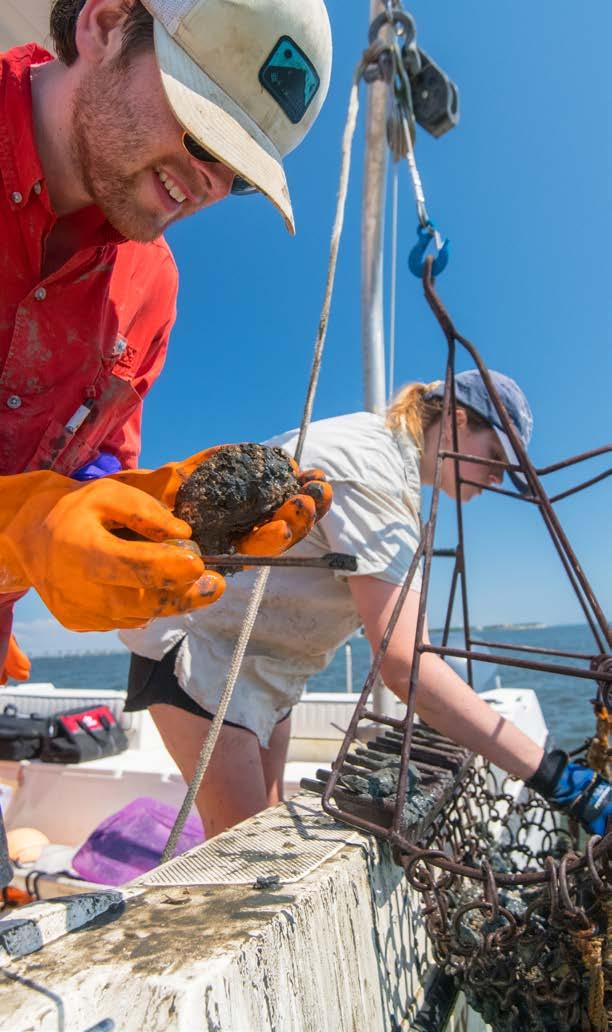
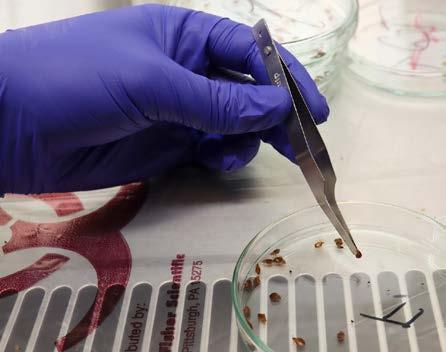


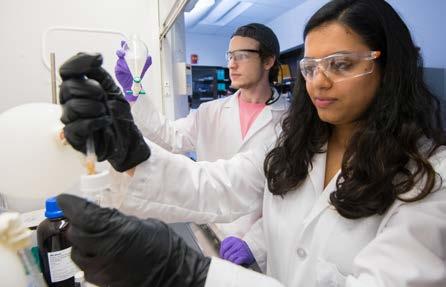
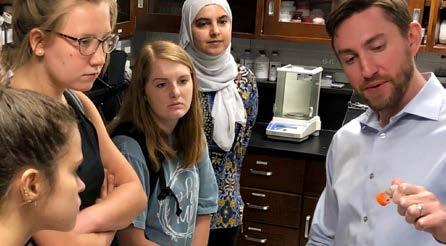
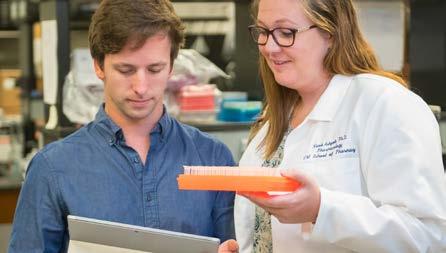













INNOVATION & ENTREPRENEURSHIP
63% of new drugs approved by the FDA in 2018 were initially developed by smaller biopharma companies. – HBM Partners
• How medicines are developed and/or discovered?
• How plants and microbes provide leads in the drug discovery process?
• How medicines are synthesized or manufactured in the phar maceutical companies?
• How the value of medicines or phar macy services is deter mined?
• How to make compounds used in the drug discovery process?
• How to improve the delivery of medicines and phar macy services in a health care system?
• How safety and efficacy of medicines are tested?
• How adverse impacts in the environment impact human health?
• How dose, dosage for m and dosing frequency for medicines are deter mined?
• Develop new therapies or improve currently available options?
• Improve and analyze treatment outcomes?
• Come up with new medicines?
• Price medicines?
If you answered “Yes” to any of the above, you should consider a career in pharmaceutical sciences as a pharmaceutical scientist.
A pharmaceutical scientist possesses a graduate degree — Master of Science in pharmaceutical sciences or the Doctor of Philosophy degree, which is the terminal degree (highest degree awarded by the university) — unlike a pharmacist, who goes through the professional pharmacy program to receive a Doctor of Pharmacy (Pharm.D.) degree.
The pharmaceutical scientist plays a part in one or more aspects of the development of new medicines and therapies, whereas a pharmacist works on intervention strategies and methods, working with existing medicines.
The pharmaceutical sciences is a confluence of multiple disciplines such as chemistry, biology, molecular biology, toxicology, mathematics, engineering, computation, operations management, marketing, finance and regulatory.

TThe University of Mississippi School of Pharmacy offers the Master of Science in Pharmaceutical Sciences and Doctor of Philosophy in Pharmaceutical Sciences. Three of the school’s four academic departments (BioMolecular Sciences, Pharmaceutics and Drug Delivery, and Pharmacy Administration) offer these degree programs.Emphases include environmental toxicology, medicinal chemistry, pharmaceutics, pharmacognosy, pharmacology, pharmacy administration and industrial pharmacy.
he University of Mississippi School of Pharmacy offers the Master of Science in Phar maceutical Sciences and Doctor of Philosophy in Phar maceutical Sciences. Three of the school’s four academic departments (BioMolecular Sciences, Phar maceutics and Drug Delivery, and Phar macy Administration) offer these degree programs.Emphases include environmental toxicology, medicinal chemistry, pharmaceutics, pharmacognosy, pharmacology, pharmacy administration and industrial pharmacy.
All of these programs offer opportunities to study with nationally and inter nationally recognized research scientists. The programs prepare students for professional pharmacy positions, teaching and research positions in academia, or administrative and research positions in the pharmaceutical, chemical, agrochemical, food and health care industries and government agencies. Our diverse graduate community includes outstanding faculty and students from around the globe, and their cutting-edge research and scholarship reflect tremendous vitality, impact and significance.
Learn more at https://pharmacy.olemiss.edu/ graduateprograms/

Career Compensation
$70,619 -150,369
Salary Range for an Assistant Professor for Calendar-Year Appointment – American Association of Colleges of Phar macy (AACP) 2019-20 Profile of Phar macy Faculty
$106,900 $125,000 -150,000
Average Base Starting Salary for Pharmaceutical Scientists in the Private Industry – American Association of Phar maceutical Scientists 2019 Salary Survey
• Academia
• Biotechnology
• Consulting
• Gover nment/Regulatory agencies such as the Food and Drug Administration
• Health care organizations
• Health insurance companies
• National laboratories such as the National Institutes of Health
• Phar maceutical industry
• Science writing & communication
In what fields do M.S. or Ph.D. graduates w ork?
• Analysis and phar maceutical quality
• Biotechnology
• Clinical phar macology and translational research
• Drug design and discovery
• For mulation design, development, and manufacturing
• Health economics and outcomes research (HEOR)
• Phar macoengineering
• Phar macoepidemiology
• Phar macokinetics, phar macogenetics, phar macodynamics and drug metabolism
• Physical phar macy and biophar maceutics
Median Base Salary for Professionals working in Health Economics and Outcomes Research (HEOR) and Market Access fields
– 2017 HEOR & Market Access Global Salary Survey, HealthEconomics.com
• Regulatory sciences
• Social and behavioral phar macy
• Toxicology
IN



EEnvironmental Toxicology includes research and educational activities that seek to identify and resolve problems related to environmental and human health issues. This work includes basic and applied research approaches to empower individuals, resource managers, regulators, and communities with the knowledge to improve human and environmental health. Research interests of the faculty include quantifying environmental contaminants and assessing their impact on environmental and human health.
nvironmental Toxicology includes research and educational activities that seek to identify and resolve problems related to environmental and human health issues. This work includes basic and applied research approaches to empower individuals, resource managers, regulators, and communities with the knowledge to improve human and environmental health. Research interests of the faculty include quantifying environmental contaminants and assessing their impact on environmental and human health.
• Air pollution toxicology
• Developmental toxicology and multigenerational fish studies
• Ecotoxicological evaluation of chemical mixtures
• Effects of phar maceuticals in the environment
• Endocrine disruptors in fish and invertebrates
• Environmental monitoring and toxicity bioassays
• Impacts of climate change on environmental and community health
• Individual- and community-level responses to natural and anthropogenic stressors in the marine environment
• Environmental Protection Agency
• National Aeronautics & Space Administration
• National Institutes of Health
• National Oceanic and Atmospheric Administration
For prerequisites and curriculum, visit https://pharmacy.olemiss.edu/etrp Department of BioMolecular Sciences 662-915-7330 • bmschair@olemiss.edu
• National Science Foundation
• Sea Grant
• U.S. Ar my Engineer Research and Development Center
• U.S. Department of Agriculture
• Water Resources Research Institute
TThe M.S. in pharmaceutical sciences with an emphasis in industrial pharmacy is a non-thesis track program designed to provide fundamental and applied knowledge of industrial pharmacy to prepare B.S.-level chemical engineers and scientists (pharmacy, biology and chemistry) for a career in the pharmaceutical industry. Students will select a specialty track in their second year of either regulatory sciences or product development and manufacturing.

he M.S. in pharmaceutical sciences with an emphasis in industrial pharmacy is a non-thesis track program designed to provide fundamental and applied knowledge of industrial pharmacy to prepare B.S.-level chemical engineers and scientists (pharmacy, biology and chemistry) for a career in the pharmaceutical industry. Students will select a specialty track in their second year of either regulatory sciences or product development and manufacturing. For prerequisites and curriculum, visit https://pharmacy.olemiss.edu/pharmaceutics/graduate-programs Department of Pharmaceutics & Drug Delivery 662-915-7341




MMedicinal Chemistry is an interdisciplinary field, involving not just chemistry but aspects of biological and pharmaceutical sciences. It is concerned with the invention, discovery, design, identification and preparation of biologically active compounds, the study of their metabolism, the interpretation of their mode of action at the molecular level, and the understanding structure- activity relationships.
edicinal Chemistry is an interdisciplinary field, involving not just chemistry but aspects of biological and pharmaceutical sciences. It is concerned with the invention, discovery, design, identification and preparation of biologically active compounds, the study of their metabolism, the interpretation of their mode of action at the molecular level, and the understanding structure- activity relationships.
• Antimicrobial and anti-cancer chemotherapy
• CNS-active agents
• Cardiovascular drugs
• Computer modeling and simulation
• Drugs affecting the endocrine system
• Fluorine chemistry
• New synthetic methods discovery
• Toxicological aspects of drug or drug-like molecules in biological systems
• American Association of Colleges of Phar macy
• American Foundation for Phar maceutical Education
• National Institutes of Health



For prerequisites and curriculum, visit https://pharmacy.olemiss.edu/medchem Department of BioMolecular Sciences 662-915-7330 • bmschair@olemiss.edu
Ph.D. M.S.
PPharmaceutics is the art and science of delivering the right amount of therapeutic agents to the right places at the right times. Faculty conducts research to identify problems related to drug delivery (e.g., biological barriers, physical and chemical characteristics of molecules) and develops solutions to overcome them.
harmaceutics is the art and science of delivering the right amount of therapeutic agents to the right places at the right times. Faculty conducts research to identify problems related to drug delivery (e.g., biological barriers, physical and chemical characteristics of molecules) and develops solutions to overcome them.
• Cancer biology
• Cancer immunotherapy
• Co-delivery of chemo drug and siRNA for the treatment of lung cancer
• Delivery of immunomodulatory agents for inflammatory disorders
• Drug delivery design strategies for ocular delivery
• Electrically mediated transder mal and trans-ungula drug delivery, electroporation and transcutaneous sampling (ETS) of drugs
• Enhancement of delivery via transporter targeted prodrugs (oral, ocular and transmucosal)
• Hot-melt extrusion processing and 3D printing of phar maceutical products
• Intranasal delivery for targeting to brain
• Light, redox sensitive prodrug
• American Foundation for Phar maceutical Education
• Ashland Specialty Ingredients G.P.
• BASF Corp.
• FiteBac SkinCare LLC
• KHG fiteBac Technology LLC
• Nano-structured systems in transder mal drug delivery
• Nanodelivery/tissue-specific delivery
• Novel drug delivery systems, including “trans” systems
• pH, ionic strength sensitive peptide-based hydrogel
• Phar macokinetics/phar macodynamics
• Polymeric drug delivery design and stabilization of drug delivery systems
• Redox, ther mal, pH sensitive polymers
• Stimuli responsive drug delivery platfor ms and NCEs
• Study of der matokinetics of drugs
• Targeted inhalation delivery of drugs and siRNA using bio-engineered polymeric or lipidic nanoparticles for asthma
• Tumor metabolism
• Ligand Phar maceuticals Inc.
• Marine Polymer Technologies
• National Institutes of Health
• National Science Foundation
• Nemus Bioscience
• U.S. Food and Drug Administration





PPharmacognosy is the study of bioactive natural products found in plants, microbes and animals, from which nearly half of all therapeutic agents are derived. While addressing challenges such as the impact of natural products on humans and the environment, faculty and students conduct research leading to new methods for analyzing drugs, toxins and herbal preparations; new therapeutic agents, pest controls and herbal medicines; and increased understanding of the pharmacology, ecology and biochemistry of molecules produced by nature.
harmacognosy is the study of bioactive natural products found in plants, microbes and animals, from which nearly half of all therapeutic agents are derived. While addressing challenges such as the impact of natural products on humans and the environment, faculty and students conduct research leading to new methods for analyzing drugs, toxins and herbal preparations; new therapeutic agents, pest controls and herbal medicines; and increased understanding of the pharmacology, ecology and biochemistry of molecules produced by nature.
• Bacterial natural products in the environment
• CNS-active agents
• Molecular probes for studying drugreceptor interactions
• New antimicrobial and anti-cancer drugs
• Polyphenols from fruits
• Semisynthetic modifications of natural products and ecological relations of marine organisms
• American Association of Colleges of Phar macy
• Mississippi Department of Environmental Quality


• National Institutes of Health
• National Oceanic & Atmospheric Administration
• U.S. Department of Treasury For prerequisites and curriculum, visit https://pharmacy.olemiss.edu/bms/divisions/pharmacognosy Department of BioMolecular Sciences 662-915-7330 • bmschair@olemiss.edu FIND OUT MORE:


Ph.D. M.S.
PPharmacology is the study of how chemical agents, including potential therapeutic drugs, act on biological systems. Our pharmacology faculty and students explore the changes in molecular, cellular, and behavioral signaling in response to drugs or other chemical constituents and allows for the characterization of beneficial effects or adverse consequences (toxicity).
harmacology is the study of how chemical agents, including potential therapeutic drugs, act on biological systems. Our pharmacology faculty and students explore the changes in molecular, cellular, and behavioral signaling in response to drugs or other chemical constituents and allows for the characterization of beneficial effects or adverse consequences (toxicity).
• Cancer
• Cardiovascular and Renal function
• Diabetes
• Glycobiology
• HIV
• GenNext Technologies Inc.
• National Institutes of Health
• National Science Foundation
• Hypertension
• Neuroscience
• Obesity
• U.S. Department of Defense
• U.S. Geological Survey

For prerequisites and curriculum, visit https://pharmacy.olemiss.edu/bms/divisions/pharmacology Department of BioMolecular Sciences 662-915-7330 bmschair@olemiss.edu
For prerequisites and curriculum, visit https://pharmacy.olemiss.edu/bms/divisions/pharmacology Department of BioMolecular Sciences 662-915-7330 • bmschair@olemiss.edu




Pharmacy administration includes pharmaceutical marketing and management, socio-behavioral sciences, and health outcomes research.
Pharmacy administration includes pharmaceutical marketing and management, socio-behavioral sciences, and health outcomes research.
• Consumer behavior and decision-making
• Drug consumption behavior
• Drug pricing
• Ethics
• Evaluation of phar macy interventions
• Health economics and outcomes research
• Health care service delivery
• Health care technology
• Health-related quality of life
• Medication adherence and persistence
• American Association of Colleges of Phar macy
• American Foundation for Phar maceutical Education
• Medical Marketing Economics LLC
• National Institutes of Health
• Patient-Centered Outcomes Research Institute (PCORI)
FIND OUT MORE:
For prerequisites and curriculum, visit https://pharmacy.olemiss.edu/phad Department of Pharmacy Administration 662-915-7262
• Phar maceutical policy
• Phar macy benefit management
• Phar macoeconomics
• Phar macoepidemiology
• Phar macy education
• Phar macy management
• Phar maceutical marketing
• Phar macist job satisfaction, tur nover and quality of work-life
• Phar macy Quality Alliance Inc.
• St. Jude Children’s Research Hospital
• University of Mississippi Medical Center
• Wal-Mart Foundation

Apply Today
Submit:
• Completed online application with application fee: https://apply.olemiss.edu/graduate
• Official transcripts from all four-year and graduate institutions attended
• Standardized test scores
GRE for Pharmaceutics & Drug Delivery
GRE or GMAT for Pharmacy Administration
• TOEFL scores for international students
• Letters of recommendation
• Department requirements such as statement of purpose, resume and interview — check with the individual department for requirements
Opportunities for teaching assistantships, research assistantships and fellowships are available. Check with the department for availability.
The University of Mississippi does not unlawfully discriminate on the basis of race, color, gender, sex, sexual orientation, gender identity or expression, religion, national origin, age, disability, veteran status or genetic information.


The University of Mississippi is recognized as a major research institution and is a part of the R-1: Doctoral Universities (Highest Research Activity by the Carnegie Classification of Institutions of Higher Education) group. Comprehensive in scope yet relatively small in size, the School of Pharmacy’s pharmaceutical sciences programs provide excellent opportunities for advanced studies in a supportive and nurturing environment. Our graduate students have opportunities to conduct research under the guidance of scientists within our Research Institute of Phar maceutical Sciences, which comprises four major nationally and internationally renowned entities:
• National Center for Natural Products Research
• Center for Phar maceutical Marketing and Management
• Pii Center for Phar maceutical Technology
• Center for Clinical and Translational Science
The University of Mississippi School of Phar macy PO Box 1848
University, MS 38677-1848
Phone: 662-915-7265
Fax: 662-915-5704

Listed in “The Best 100 Small Towns in America” and “Best Small College Town” by USA Today.
Listed in “The Best 100 Small Towns in America” and “Best Small College Town” by USA Today.
The University of Mississippi’s main campus is located in the picturesque city of Oxford, combining the charm and safety of a small town with the sophistication of a larger city. Touted as the “Cultural Mecca of the South,” creativity abounds in Oxford as musicians, artists and writers alike find inspiration in Oxford’s rich history, small-town charm and creative community. Located 75 miles southeast of Memphis, Tennessee, Oxford is easily accessible from Interstate 55 and is less than a six-hour drive from Atlanta, New Orleans and Nashville.
The University of Mississippi’s main campus is located in the picturesque city of Oxford, combining the charm and safety of a small town with the sophistication of a larger city. Touted as the “Cultural Mecca of the South,” creativity abounds in Oxford as musicians, artists and writers alike find inspiration in Oxford’s rich history, small-town charm and creative community. Located 75 miles southeast of Memphis, Tennessee, Oxford is easily accessible from Interstate 55 and is less than a six-hour drive from Atlanta, New Orleans and Nashville.